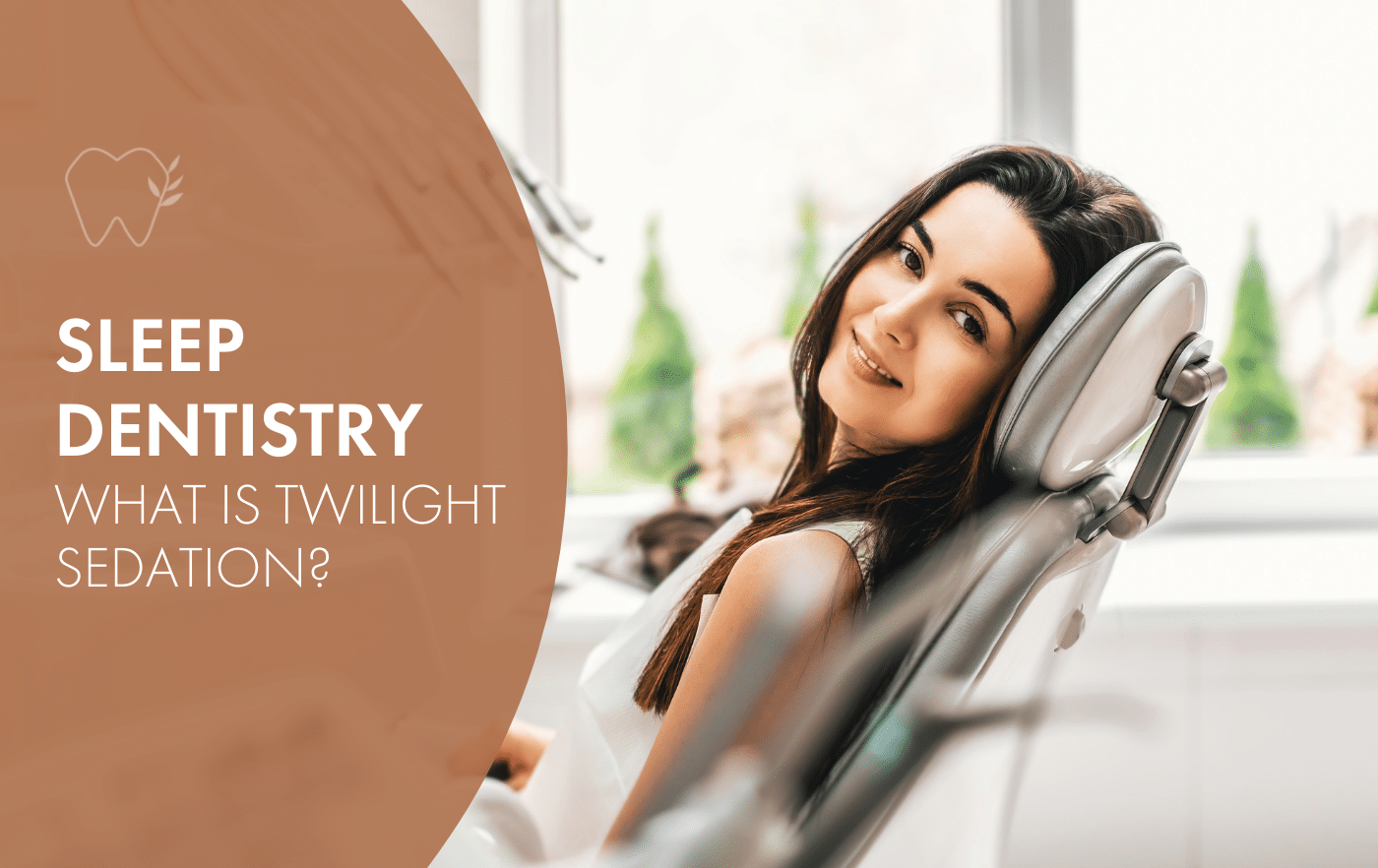
Sleep Dentistry: What is Twilight (IV) Sedation?
We understand that for some people, dental appointments are not all fun and games. Some people can become quite nervous or anxious about visiting the dentist and avoid making dental appointments or seeking dental care and treatment. This, of course, can lead to more serious dental issues as their oral health deteriorates.
If dental anxiety is something all too familar to you, Twilight Sedation (also known as IV Sedation) is an option you may wish to consider! You can enjoy comfortable and pain-free dental appointments at The Grove Dental Rouse Hill knowing that sedation will alleviate the nervousness and anxiety associated with visiting the dentist.
Here’s everything you need to know about Twilight Sedation.
What is Twilight Sedation?
Twilight Sedation (also known as IV Sedation, conscious sedation or twilight anesthesia) involves placing a small cannula and injecting sedative medication into a vein in your arm. The injection is painless and the sedation takes effect immediately. You become very relaxed, calm and drowsy meaning that dental treatment can be carried out quite comfortably. You will have reduced perception of pain, sound and smell. The level of sedation can be controlled by the sedationist/anesthetist depending on the procedure. During the dental procedure, your blood pressure, pulse and blood oxygen levels are constantly monitored. Moderate or deep sedation may slow your breathing, and in some cases, you may be given oxygen. But even with deep sedation, you won’t be unconscious, as you would be with general anesthesia.
Who is Suitable for Twilight Sedation?
Twilight sedation was engineered for patients with dental phobia. It is also recommended for patients unable to keep their mouth open, those requiring a significant amount of dental treatment, as well as those with a strong gag reflex. It is particularly helpful for patients who are:
- Nervous about needles and instruments coming near their teeth and gums
- Uncomfortable with the sounds and tastes associated with dental procedures
- Affected by teeth and gums that are very sensitive
- Nervous about dental conditions that may require longer treatment times
- Have trouble feeling numb after injections of local anesthetic
- Have very complex dental problems
What Dental Treatment Can Twilight Sedation be Used For?
Generally, Twilight Sedation is used for longer appointments such as:
- Extraction of wisdom teeth
- Dental surgery to place implants
- Root canal treatment
- When multiple teeth need to be prepared for crowns
Twilight anesthesia can also be used when a patient requires several treatments and wishes to get several treatments completed in the one visit (where possible). It makes it easier for the dentist to complete all treatments at once without the patient being in pain or feeling uncomfortable.
What are the Side Effects of Twilight Sedation?
Side effects associated with Twilight Sedation are rare, though a small number of patients experience headaches, dizziness, nausea, and selective amnesia up to some hours after the procedure. Many of our patients cannot remember the procedure at all!
Twilight Anesthesia VS General Anesthesia
Though the medicines used in both forms of anesthesia are similar, the Twilight Anesthesia dose is lower than that of general anesthesia. General anesthesia is used to keep the patient completely unconscious during the procedure and may even take some time for the patient to regain full consciousness after the treatment. There may be stronger side-effects following General Anesthesia and it is normally only conducted in a hospital setting.
On the other hand, Twilight anesthesia allows you to remain conscious during the procedure and respond to questions, though drowsy and relaxed. It also allows for quicker recovery and is not accompanied by serious side effects.
Are You Awake During Twilight Sedation?
The answer is Yes and No.
You are awake enough to be conscious of your surrounding but not entirely able to perceive pain, anxiety or fear. You might answer questions that are being asked or respond to instructions from the dentist, but you may not recollect what was asked or what occured during the procedure later.
Can you Talk During Twilight Sedation?
Yes, you can.
In most cases, will be able to answer questions asked and follow directions given by your dentist throughout the procedure. Some patients in moderate to deep sedation may nod off during the procedure, but it is possible to wake you with a gentle shake.
How Long Does It Take for Twilight Sedation To Wear Off?
While you may return to consciousness almost immediately, it is recommended that you take some time off to let your body readjust back to full consciousness and regain your reflexes and coordination. You are advised not to drive, drink or operate machinery for at least a day after the treatment. You will need an escort to bring you to, and take you home from, the appointment.
Interested to know more? Ask us about Twilight Sedation at your next appointment!
At The Grove Dental Rouse Hill, we are a team of dental professionals who take the time to listen and understand your dental concern to offer you the best treatment options possible. We have a team of highly-trained sedationists and anesthetists who come to administer sedation for our patients. If Twilight Sedation is something you’d like to find out more about, call our friendly team or ask our dentists at your next appointment.



